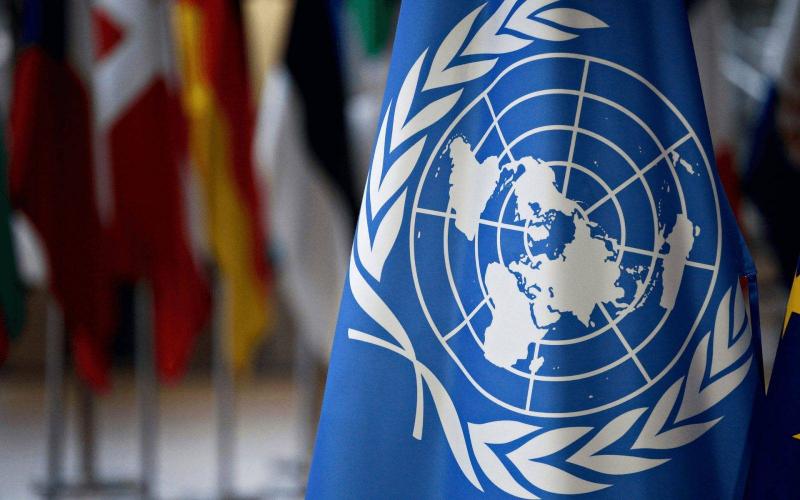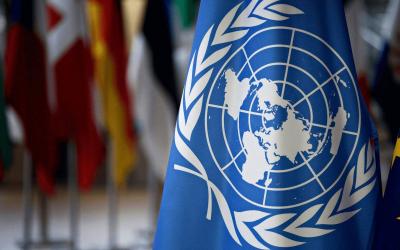Every year on December 10, the world celebrates Human Rights Day, an annual occasion to revitalize the demands set forth in the Universal Declaration of Human Rights, which was issued on the same day in 1948. This year's celebrations hold special significance due to the increase in armed conflicts and disputes in various regions of the world, leading to violations and marginalization of human rights, as well as a heightened state of instability and suffering that has deepened inequality, according to the Office of the United Nations High Commissioner for Human Rights.
The celebration of Human Rights Day dates back to 1950, when the General Assembly issued a resolution inviting all countries and international organizations to adopt December 10 of each year as a global Human Rights Day. This date was chosen to signify the day the United Nations General Assembly adopted the Universal Declaration of Human Rights in 1948, under a resolution that set for the first time the fundamental human rights to be protected globally. The international organization established this declaration as "the common standard of achievement for all peoples and nations."
The aim of the celebration is to highlight the Universal Declaration of Human Rights by focusing on its legacy, significance, and the advocacy efforts carried out within its framework, according to the United Nations.
The Universal Declaration of Human Rights represents a significant document in the history of human rights, crafted by representatives from various legal and cultural backgrounds from all over the world, and adopted by the United Nations General Assembly in Paris on December 10, 1948. The declaration outlined, for the first time, the fundamental human rights that should be globally protected. Since its adoption in 1948, the Universal Declaration of Human Rights has been translated into more than 500 languages, making it the most translated document in the world — and it has inspired the constitutions of many newly independent countries and numerous new democracies, according to the United Nations.
Although the declaration is not a binding document, it has also inspired the development of over 60 human rights instruments, which together form an international standard for human rights. The Universal Declaration, along with the International Covenant on Civil and Political Rights and its optional protocols (regarding complaint procedures and the death penalty) and the International Covenant on Economic, Social and Cultural Rights, constitutes what is referred to as the "International Bill of Human Rights."
The declaration's preamble outlines 30 universal rights; specifying a wide range of fundamental rights and freedoms, including the right to be free from discrimination, the right to freedom of expression, the right to education, and the right to seek asylum. It also includes various civil and political rights for individuals and groups, such as the right to life, liberty, and privacy, and refers to several economic, social, and cultural rights, such as the right to social security, health, adequate housing, fair wages, and the right to vote, among others. The declaration also highlights the values of freedom of opinion and expression and mutual respect, without discrimination based on nationality, residence, gender, national or ethnic origin, religion, language, or any other status.
The document states in its first article: "All human beings are born free and equal in dignity and rights. They are endowed with reason and conscience and should act towards one another in a spirit of brotherhood."
In a message on the occasion of Human Rights Day, UN Secretary-General António Guterres urged member states to seize the opportunity of the 75th anniversary of the Universal Declaration of Human Rights to enhance their commitment to the timeless values enshrined in it. He encouraged people around the world to uphold and respect human rights every day, for every person, everywhere.
Guterres recalled the first article of the Universal Declaration which states: "All human beings are born free…" and emphasized that this opening is as significant today as it was when it was adopted 75 years ago. He described the Universal Declaration of Human Rights as "a roadmap guiding the way to ending wars, healing divisions, and promoting peaceful and dignified living for all."
However, Guterres warned that "the world seems to be straying from this goal," explaining that "conflicts are raging, poverty and hunger are rising, inequalities are deepening, the climate crisis is a human rights crisis that disproportionately affects the most vulnerable, authoritarian rule is on the rise, civil space is shrinking, and media is under attack from all sides." He also noted that gender equality remains a distant dream, and the reproductive rights gained by women are being stripped away once again.
The Secretary-General affirmed that it is more important today than ever to promote and respect all human rights — social, cultural, economic, civil, and political rights — which ensure protection for us all.




